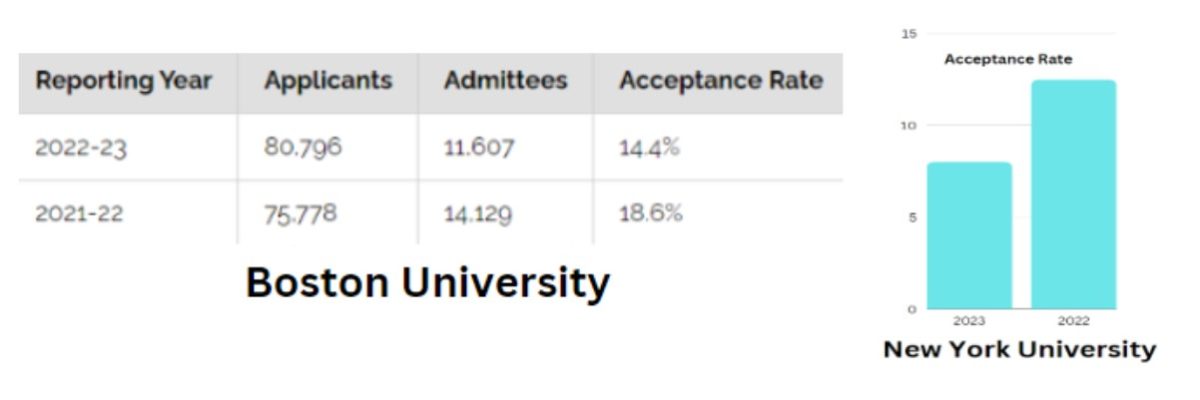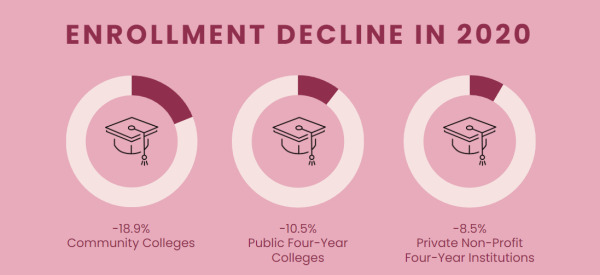As America enters the new calendar year, current and recent high school graduates throughout the nation still recall one of the most intense years yet in the college admissions process. College acceptance rates have been declining as admissions officers’ inboxes are overflowing with applications from not only graduating high school classes of 2023 and now 2024, but classes of 2022, 2021, and 2020 as well.
The U.S. has been getting back on its feet since Joe Biden declared the COVID-19 pandemic over on Sept. 19, 2022. Nothing could’ve been seen as more immediate than a 2020-2022 graduate’s need to finally start their college career after it being put on hold.
After 3 years of struggle with recruitment and student commitment for many colleges, this new year, being one of the first “normal” since the country’s official end to a global health crisis has been envisioned to take its turn towards success in August of 2022. 2023 graduate Isha Agni was one of the many victims of extra pressure within these last two years of competition in applying to colleges.
“I was a little more stressed because of this [raise] in competition with people [outside] of my graduating class [at the time],” Agni said. “I was also somewhat surprised when I saw that I didn’t get into some colleges I truly thought I would get into. [COVID-19] affected that because now everyone is applying!”

As of 2023, Boston University’s acceptance rate lowered due to increased numbers of applicants since the year 2022. Between the two school years, acceptance rates for many schools, including New York University with a drastic difference, have gradually decreased.
2024 high school seniors applying for universities struggle with this lasting effect inflicted by remaining COVID-19 gap year applicants, and the 2023 school year’s college statistics.
2020 is officially known to colleges as the year of struggle and the worst recruitment across the nation. The National Student Clearinghouse Research Center states that there has been a decline in undergraduate enrollment which has dropped 4.4% at the start of the 2020 school year.
The rise of the Coronavirus pandemic has caused that season’s incoming freshmen, as well as already enrolled college students to reconsider the continuance of their education for the 2020-2021 school year. The worsening factors of the pandemic have led these students to defer their enrollment or take a gap year. For many, that has become two or three gap years.

“For a few years, there may still be a drop in acceptance rates [that] will make it more challenging for students trying to get into their top colleges,” Agni said. “I [made sure to] add more higher acceptance schools to my [college] list because I was afraid that I wasn’t going to get into any of the ones I [originally] wanted to apply to.”
SAT/ACT score submission being made optional for many schools is no easing factor in the college admissions process as well, as it gives students a boost in their chances to show strengths in many different areas.
As of the start of the new year, Boston University has decided to remain test-optional for students applying for admission through this spring and fall of 2024. Changes in standardized test submission requirements such as this give an uplifting outlook for students, allowing more of them to apply, as it gives them confidence in their application.
This and recent years’ high school seniors have been hit with an increased wave of competition, so to the class of 2025: let college preparation be crucial in the upcoming seasons as you tour and apply to your preferred schools.
“Don’t wait! Start now!” Agni said. “If you know your grades need work, fix them, and don’t procrastinate. Make sure to get everything done in advance, and start deciding about colleges immediately.”















